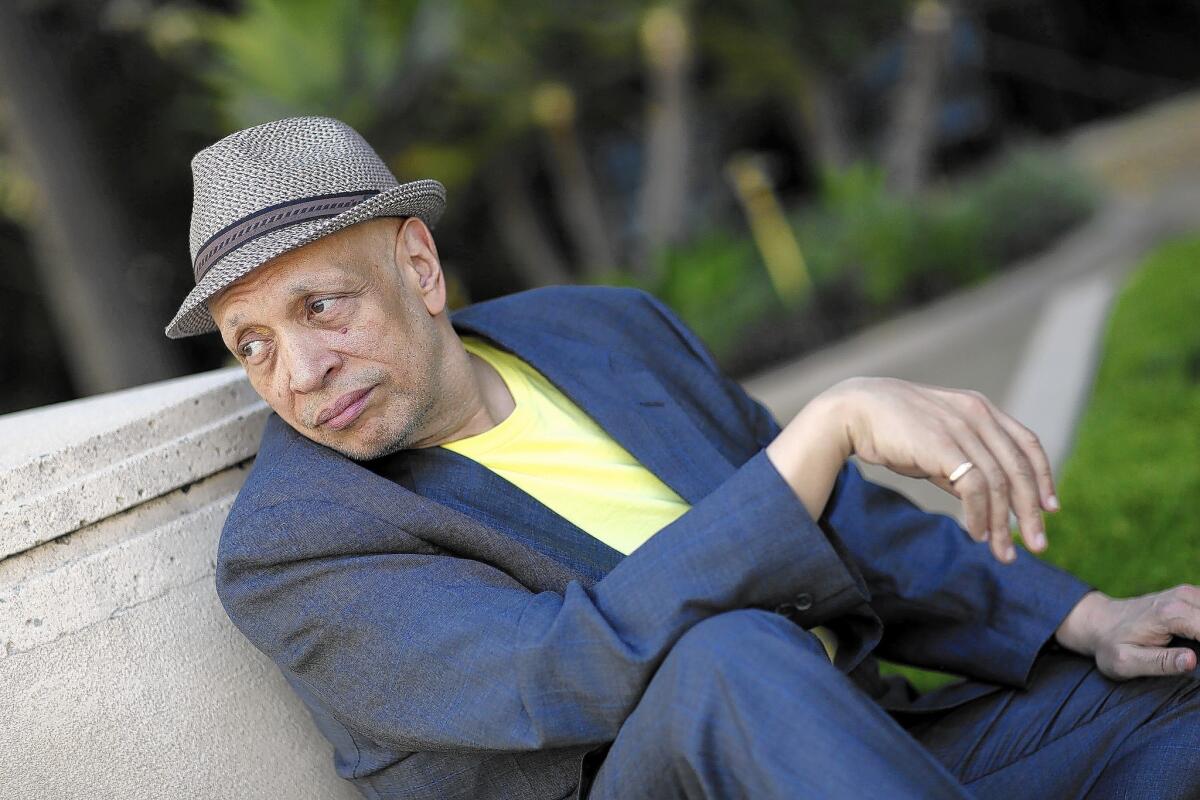Review: Riding with Easy Rawlins in Walter Mosley’s ‘Rose Gold’

In last year’s “Little Green,” we witnessed the literal rebirth of Walter Mosley’s streetwise and down-home detective Easy Rawlins as he emerged from a two-month semi-coma into a strange new world — L.A.’s version of 1967’s Summer of Love — and hunted down a lost black teenager in the city’s hippie enclaves. Now, in “Rose Gold,” his 13th adventure, set just afterword, Easy is charged with locating the heiress to a munitions fortune, Rosemary Goldsmith, who may have been kidnapped by an ex-boxer possibly turned revolutionary leader.
After 20 years as a private investigator, Rawlins is uniquely able to navigate the city’s evolving landscape. He understands the shifting ethnic makeup of its neighborhoods, from East Los Angeles to Watts to the Hollywood Hills, as well as the codes of conduct that operate in each of them — no simple feat. Mosley’s novels don’t simply take place in the city or in just one section of the city; they are the city and its residents revealed through plot, dialogue and dialect, landscape and streetscape and countless vivid details of dress and demeanor.
“At one time, quite recently, only white people, mostly men, in business attire would be allowed through the front doors of downtown offices,” Easy says. “Those rules were slowly evaporating but they lingered in the memories, desires, and expectations of the old guard and their offspring.”
Yet as seamlessly as he does all this, he is subjected to routine traffic stops and other forms of police harassment. After all, he is a black man on the move.
Mosley’s plots are comfortably linear — Easy is usually charged with finding a missing person, and his investigation leads him in an orderly progression from one place in Los Angeles to another as he trades favors (until the recent novels, his preferred method of payment) for services and information. In “Rose Gold,” as in the previous novels, you don’t have to worry too much about the intricacies of who did what and why and when. You just want to go along for the exhilarating ride.
You know Mosley will bring things to a satisfactory conclusion, so you can let the story fall away in favor of its rich social fabric, rendered in well-observed details of skin color, speech, dress and, of course, neighborhoods. This is the triumph of each Easy Rawlins story — documenting this changing panorama of a city where the migration of Southern blacks, eager to claim it as their new world, is constantly remaking the city as it remakes them.
Every Rawlins novel can be read on its own, but it’s a far richer experience to read them in sequence and follow Easy’s complex evolution as well as that of his ad hoc family and tight circle of friends. These are the folks who provide a fascinating set of roadside attractions as Easy’s case rolls on. Mosley doesn’t let anyone slide; everyone, no matter how minor, gets full billing.
Although Easy’s slick criminal pal Mouse (the best character in all 13 novels) is physically absent from “Rose Gold,” Mosley keeps us informed on their difficult friendship, letting us know that Mouse has upped his game and is on the national heist circuit. Jewelle, the smart teenager we met in 1994’s “Black Betty,” is now a well-established real-estate mogul, and Mosley suggests the possibility of progress not just for blacks in Los Angeles but for women too.
With so many balls in the air, so many rich characters chugging along in Rawlins’ Los Angeles, it’s possible to forgive that the revolutionary cell and the Patty Hearst-like Goldsmith fueling the plot are undercooked.
Although it is set in 1967, the story line of “Rose Gold” is sadly familiar. Rosemary Goldsmith may be the focus of the novel’s rescue mission, but it is the innocent young black man the LAPD has orders to shoot on sight who is the book’s real victim.
Mosley didn’t write “Rose Gold” as a parable of recent events in Ferguson, Mo., and beyond. He wrote it as an evocative tale of race relations in the late 1960s. If we recognize it as entirely too familiar, I do not think Easy Rawlins would be surprised.
Pochoda is the author, most recently, of “Visitation Street.”
Rose Gold
A Novel
Walter Mosley
Doubleday: 320 ppb., $25.95
More to Read
Sign up for our Book Club newsletter
Get the latest news, events and more from the Los Angeles Times Book Club, and help us get L.A. reading and talking.
You may occasionally receive promotional content from the Los Angeles Times.






